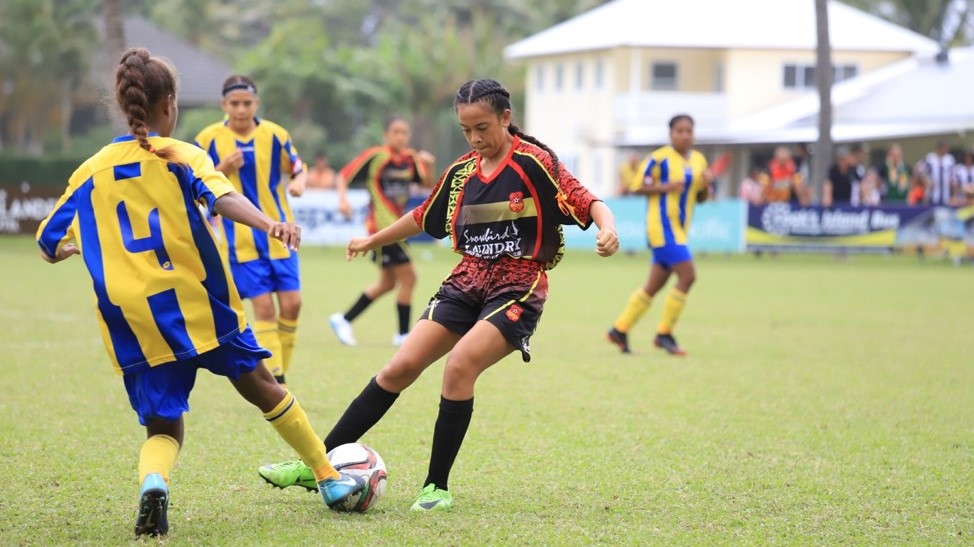OFC welcomes FIFA’s club licensing guide for women’s football
Thursday 2 June 2022 | Written by Supplied | Published in Football, Sports

Oceania Football will support Member Associations including Cook Islands through the wide-ranging possibilities created by FIFA’s new club licensing guide for women’s football. Photo: CIFA MEDIA/22060112
The Oceania Football Confederation (OFC) is excited to support Member Associations including Cook Islands through the wide-ranging possibilities created by FIFA’s new club licensing guide for women’s football.
The FIFA Guide to Club Licensing in Women’s Football was launched in April as another step on the organisation’s core vision pathway of enabling and accelerating the development of the women’s game.
The guide simplifies and highlights the 10 steps which member associations can utilise to establish a club licensing system. Eight further steps, to continue supporting the implementation of licensing season-by-season, are also presented.
This new resource will ensure all stakeholders have a step-by-step simplified document at hand when looking to improve current systems or even create their own.
“One of the most effective ways to empower clubs to raise overall standards and performance pathways for female players is through club licensing, thus helping them to achieve long-term, sustainable growth,” FIFA’s Chief Women’s Football Officer Sarai Bareman said.
“Alongside FIFA’s significant ongoing investment into existing club licensing and FIFA development programmes, this new guide – which is a first of its kind – is yet another important tool we are providing to our Member Associations (MAs) to help accelerate the growth of women’s football globally.”
Aligning itself with one of the key pillars of FIFA’s The Vision 2020-23, accelerating the growth of women’s football, the guide also overlaps with OFC’s ALL IN: OFC Women’s Football Strategy 2027, which aims to increase the development, growth, sustainability and professionalisation of women’s football in Oceania.
OFC Clubs and Leagues Manager, Steven Dillon, said clubs are the “lifeblood” of football and that implementing club licensing successfully can have a significant impact on women’s football both on and off the pitch.
“The OFC recognises the impact club licensing can have on both administrative capability off the field and success on the field,” Steven said.
“The development of club licensing with the formation of new leagues, or the evolution of current league structures, are devised concurrently and we intend to have elements adopted by all our MAs for national and continental competitions.
“We’ll continue developing local capability, providing support, and ensuring that any amendments to club licensing are appropriate for the sustainability of the game.”

















































